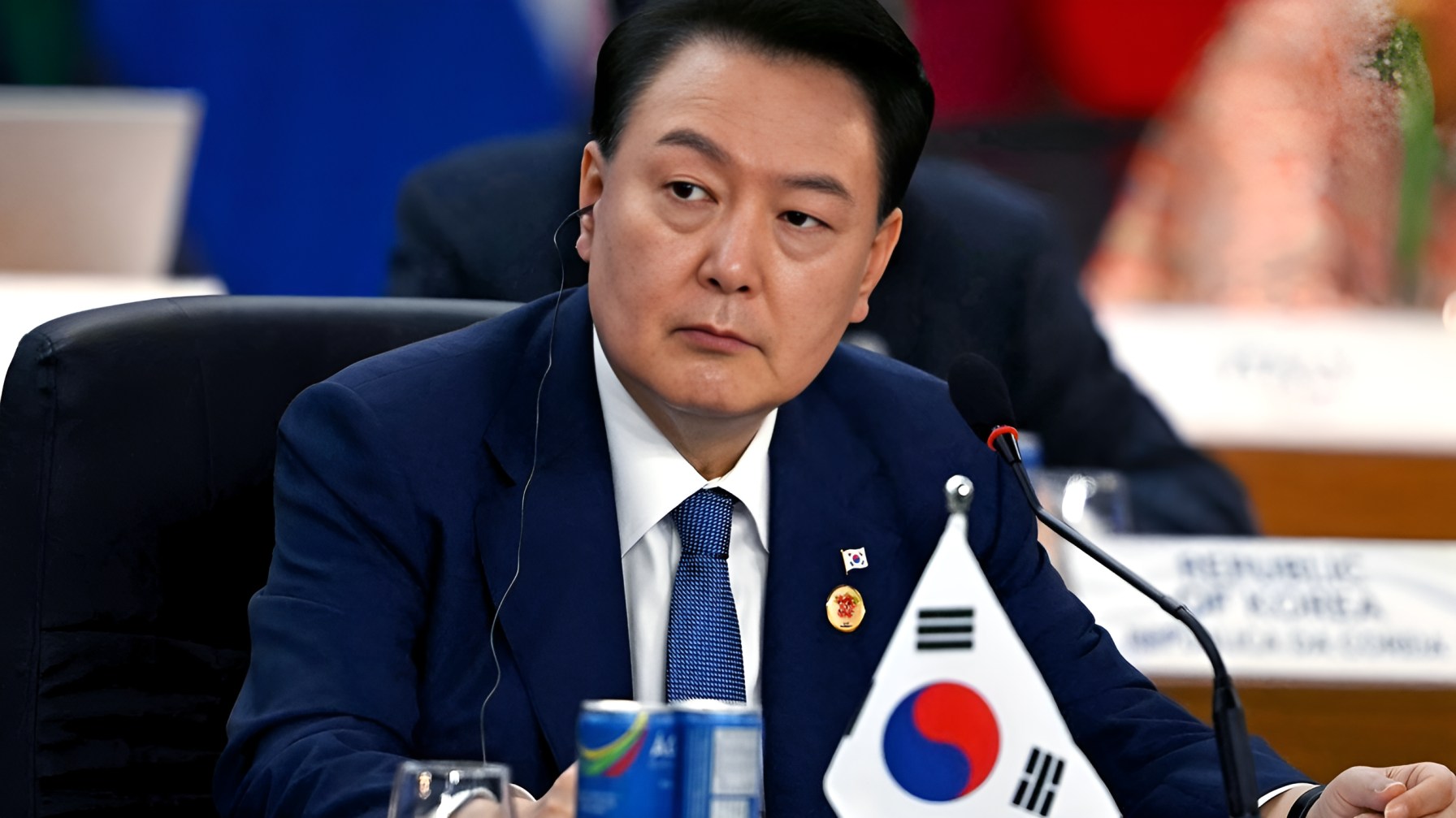Key things about South Korea's snap presidential poll

Yoon Suk Yeol was originally expected to remain in office until 2027, but his presidency came to an abrupt and controversial end.
South Koreans will head to the polls on 3 June to choose a new president following the ousting of Yoon Suk Yeol, who was removed from office after briefly imposing martial law in December, a move that triggered widespread unrest and sharply divided public opinion.
The incoming leader will be tasked with restoring political stability and steering the economy through the aftermath of Yoon’s controversial decision, which left the country in a state of uncertainty.
This snap presidential vote comes at a pivotal time, with South Korea navigating complex geopolitical tensions.
Its long-standing alliance with the United States is now tested by the unpredictability of President Donald Trump, a factor likely to influence key issues such as the nuclear threat posed by North Korea and strained ties with China.
As the nation of roughly 52 million prepares to elect a new head of state, the outcome will shape its domestic and international trajectory for the next five years.
Yoon Suk Yeol was originally expected to remain in office until 2027, but his presidency came to an abrupt and controversial end.
On 3 December, he stunned the nation by imposing martial law, claiming it was necessary to counter threats from “anti-state forces” and North Korea.
However, many soon concluded that his actions were driven more by his own political struggles than genuine security concerns.
Just a week later, parliament voted to impeach him. That decision was upheld by the constitutional court on 4 April, officially removing Yoon from office and triggering a snap presidential election within 60 days, as mandated by South Korean law.
In the six months following the martial law declaration, South Korea has seen an unusual rotation of interim presidents.
The latest acting president is Labour Minister Lee Ju-ho, who stepped in one month ahead of the election.
He succeeded Prime Minister Han Duck Soo, who was impeached only weeks after taking over from Yoon.
Before Han’s brief return to office in March, Finance Minister Choi Sang-mok had also served as acting president.
Recent polls show Lee Jae-myung of the main opposition Democratic Party leading the race among six presidential hopefuls, with Kim Moon-soo of the ruling People Power Party (PPP) trailing behind.
Lee, who narrowly lost to Yoon Suk Yeol in the 2022 election, is celebrated by his supporters as a champion of the working class.
Having started out in a factory before becoming a human rights lawyer and politician, he has pledged to build a “real Republic of Korea” focused on employment and social justice.
Kim, a former labour minister, is running on a pro-business platform, branding himself as the candidate who will prioritize economic growth and create a more investor-friendly environment.
Other contenders include Lee Jun-seok of the New Reform Party, Kwon Young-guk of the Democratic Labor Party, and two independents, Hwang Kyo-ahn and Song Jin-ho.
Notably, this marks the first South Korean presidential election in 18 years without a female candidate. The first woman to declare a presidential bid was Hong Suk-ja in 1987, though she withdrew before the vote. In 2012, four women were on the ballot.
The presidential election is set for 3 June, with polling stations open from 06:00 local time (22:00 GMT) until 20:00.
South Korean citizens living abroad had the opportunity to cast their ballots early between 20 and 25 May.
Vote counting will begin as soon as polls close, and the results are expected to roll in overnight. The winner is likely to be declared in the early hours of 4 June.
In the 2022 election, Yoon Suk Yeol was declared the winner at 04:40, just nine hours after polls closed, after edging out Lee Jae-myung by a razor-thin margin of 0.73%, the narrowest in South Korea’s presidential history.
The new president will assume office immediately upon confirmation, without the benefit of a formal transition process, a break from tradition due to Yoon’s abrupt removal.
Yoon Suk Yeol is currently facing trial on insurrection charges linked to his attempt to declare martial law during his presidency.
In a dramatic turn of events in January, he became the first sitting president in South Korea’s history to be arrested, as investigators broke through barricades and barbed wire to detain him.
He was released weeks later due to a legal technicality.
In addition to the insurrection case, Yoon has also been formally indicted for abuse of power, a separate criminal charge.
Ahead of the election, Yoon resigned from the ruling People Power Party, a move analysts interpret as a strategic effort to boost the presidential prospects of the party's candidate, Kim Moon-soo.
